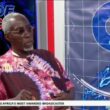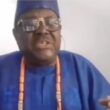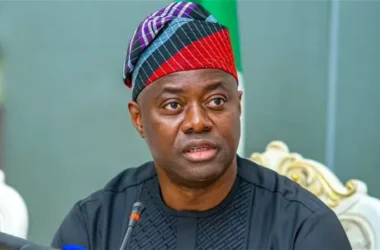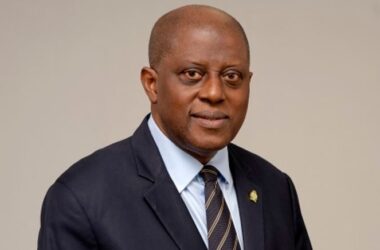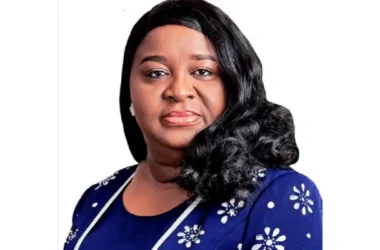Experts shared divergent views on the growing dominance of the All Progressives Congress (APC) in Nigeria’s political landscape, sparking a debate on whether the country is gradually drifting towards a one-party state
Speaking on Inside Sources with Laolu Akande aired on Channels TV on Friday, the experts expressed divergent views over recent political maneuvers and their implications for Nigeria’s democratic future.
Veteran journalist and author, Etim Etim, on his part, raised the alarm over what he described as President Bola Tinubu’s apparent attempts to convert Nigeria into a one-party state.
“First, it’s shocking, I’m disappointed, and I’m sorry that this is happening under the watch of a president that we trusted would make a difference,” Etim said, referencing the growing wave of opposition governors defecting to the ruling All Progressives Congress (APC).
Commenting on the president’s recent absence, Etim questioned Tinubu’s decision to embark on what was described as a “retreat,” saying, “He left, and we were told he went for a retreat. I don’t know of any president who goes on a retreat all by himself. A retreat is usually for the cabinet or the team to review and project. So that he went all by himself—I could not understand what kind of retreat that was.”
Etim noted that during the president’s absence, Nigeria was plunged into turmoil. “He came back to a nation that was under siege and on edge. Over 300 people were killed when the president was away. And a new terrorist group, Mahmuda, or whatever the name is, has emerged.”
Instead of addressing the worsening security situation, Etim observed that political developments dominated headlines.
“The first thing we heard was some PDP governors were preparing to defect. And yesterday, the Delta State governor defected. This is very bad for our democracy, a very serious problem for the polity.”
Drawing parallels to authoritarian regimes, Etim warned: “We are heading for a one-party state like Zimbabwe. So APC will become ZANU-PF. It’s heading that way. I understand that these governors are being compelled to defect. Some of them are saying, ‘No, we won’t defect.’ The governor of Akwa Ibom, for instance, is saying he won’t defect, but he will support the president. Even the Senate president is under pressure.”
He continued, “This is a very serious problem. Never before have we seen this in the country, and it bodes very badly for the development of the country.”
On the broader political strategy behind the defections, Etim claimed that the president is working to consolidate power ahead of the 2027 election. “I think the president is facing two critical problems or challenges. Number one is his re-election, which he’s entitled to. And now he’s facing a situation in which the northern half of the country has rebelled against him.”
According to Etim, the president is losing critical support in the North. “Even APC governors, APC members—strong members—are saying publicly that they are not going to support the president. [Former Kaduna State Governor] El-Rufai has left. Professor Zulum has spoken publicly against the president. He hasn’t said he will leave, but he doesn’t need to say it. Buba Ahmed, who served until last week, has left. And he’s echoing the sentiments in the North.”
In response to this challenge, Etim explained, the presidency is pushing to gain full support in the South. “The strategy is the whole of the 17 southern governors must support APC, especially the eight opposition governors in the South. Either they must defect to APC or work towards the president’s re-election. The calculation is to get the South’s 17 states and then target seven more to secure a comfortable victory with 24 states.”
He likened the strategy to former President Olusegun Obasanjo’s power play in 2003 but warned that the forced defections may have dangerous unintended consequences. “Governors are being forced. They are defecting. They are getting their eyes off the ball—off governance.”
On his part, the host of the show and former Presidentia aide Laolu Akande disagreed vehemently. He said “I don’t agree with that.
Earlier on Sunrise Daily on Channels TV, Akande had said ““Whatever you say about Asiwaju Bola Tinubu, he was in opposition from 1999 up until 2015. That is stamina. These guys—like former Delta State Governor Ifeanyi Okowa and others—lack stamina. It’s as simple as that.”
When asked what the president could do to restore public trust, Etim was blunt. “His supporters are disappointed. They might not say so. The country is very disappointed. They held him in very high esteem. The expectations were very high. This was the Bola Tinubu we knew in 1999 to 2007. What has happened? This president has to sit up and redeem his image.”


